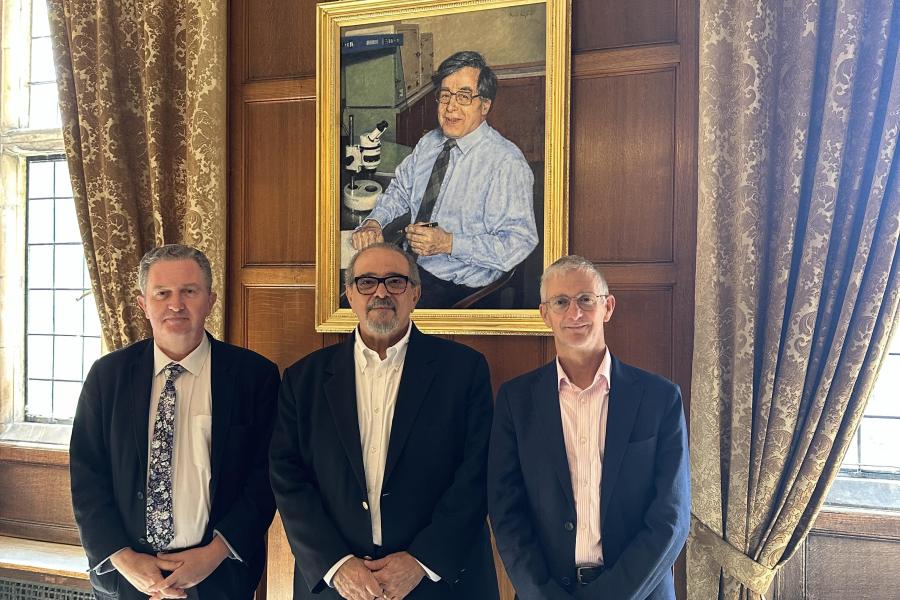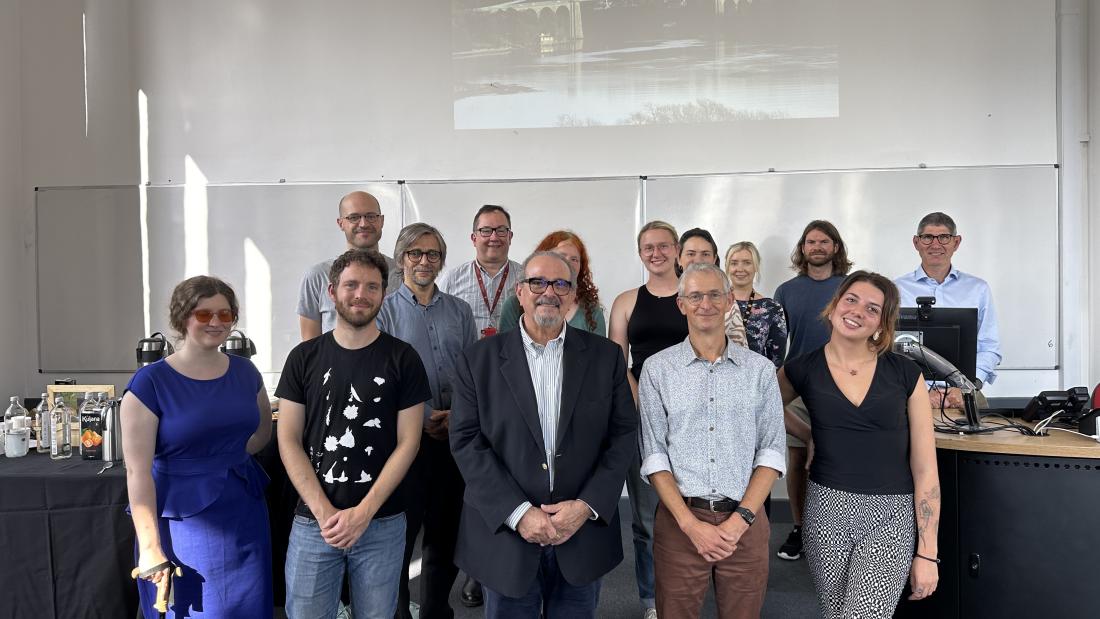A pioineering workshop focused on multidisciplinary approaches to sustainable transitions took place on 28 August at Bangor University, bringing together researchers and academics from across the globe to discuss pathways towards a more balanced and equitable future for land, people, and culture. The event, held in collaboration with Places of Climate Change (PloCC), the Department of Psychology’s Institute for Wellbeing Research at Bangor University, and Universidade CEUMA in Maranhão, Brazil, aligns with the British Academy’s ‘Just Transitions’ funding call under their “Knowledge Frontiers: International Interdisciplinary Research Projects 2025.”
The workshop, led by Professor John Parkinson commenced with a buffet lunch, providing participants with an opportunity to network and exchange ideas before engaging in research presentations and discussions. The academic disciplinary mix included psychology, anthropology. linguistics, forestry, earth science, health economics, history, engineering and possibly more! The keynote presentation was delivered by Professor Carlos Tomaz from Universidade CEUMA, who offered insights into the university's research on the Amazon biome, emphasising the importance of sustainable practices in one of the world’s most critical ecosystems.

In reflecting on the importance of the workshop, Prof Carlos Tomaz said:
“It was a good opportunity to exchange expertise and try to build a long-term collaboration between Bangor and CEUMA. This further consolidates the relationship between Wales and Brazil in terms of environment, health and sustainability, including not only research but also international education and mobility between students and researchers from both sides. CEUMA university is the biggest private university in Northern Brazil having over 30,000 students and is located in a transitional area between tropical Amazonia and the savanna in the North East Brazil. This area makes a very good opportunity for research and education on natural ecosystems and the impact of humanity.”
The afternoon session featured a series of 10-minute presentations on diverse topics, including the spatial and temporal variation in Amazon deforestation, the role of discourse and place attachment in climate change research, and the impact of green and blue spaces on human health and wellbeing, with case studies from North Wales and beyond. Notable presentations also explored learning from energy transitions in Wales and the US, the use of wireless sensor networks to empower Vietnamese farmers, and innovative research on peatlands to combat greenhouse gas release.
Following the presentations, a plenary discussion allowed participants to engage in a dynamic dialogue about the challenges and opportunities for sustainable transitions. The workshop concluded with a session dedicated to identifying emergent themes, future opportunities, and actionable steps for ongoing collaborations between Bangor University and Universidade CEUMA.
In concluding the workshop, Prof John Parkinson said:
“Bangor University is a centre of excellence for research into sustainability, broadly defined, and we have found an excellent partner in CEUMA Universidade which has complimentary research interest and strengths. I hope this workshop provides a solid foundation for future research opportunities and collaborations. A key ambition for the partnership is to delivery a symposium next year at the UN COP 30 summit in Belém, Northern Brazil.”
For further information or to express interest in future events, please contact Professor John Parkinson at Bangor University.

